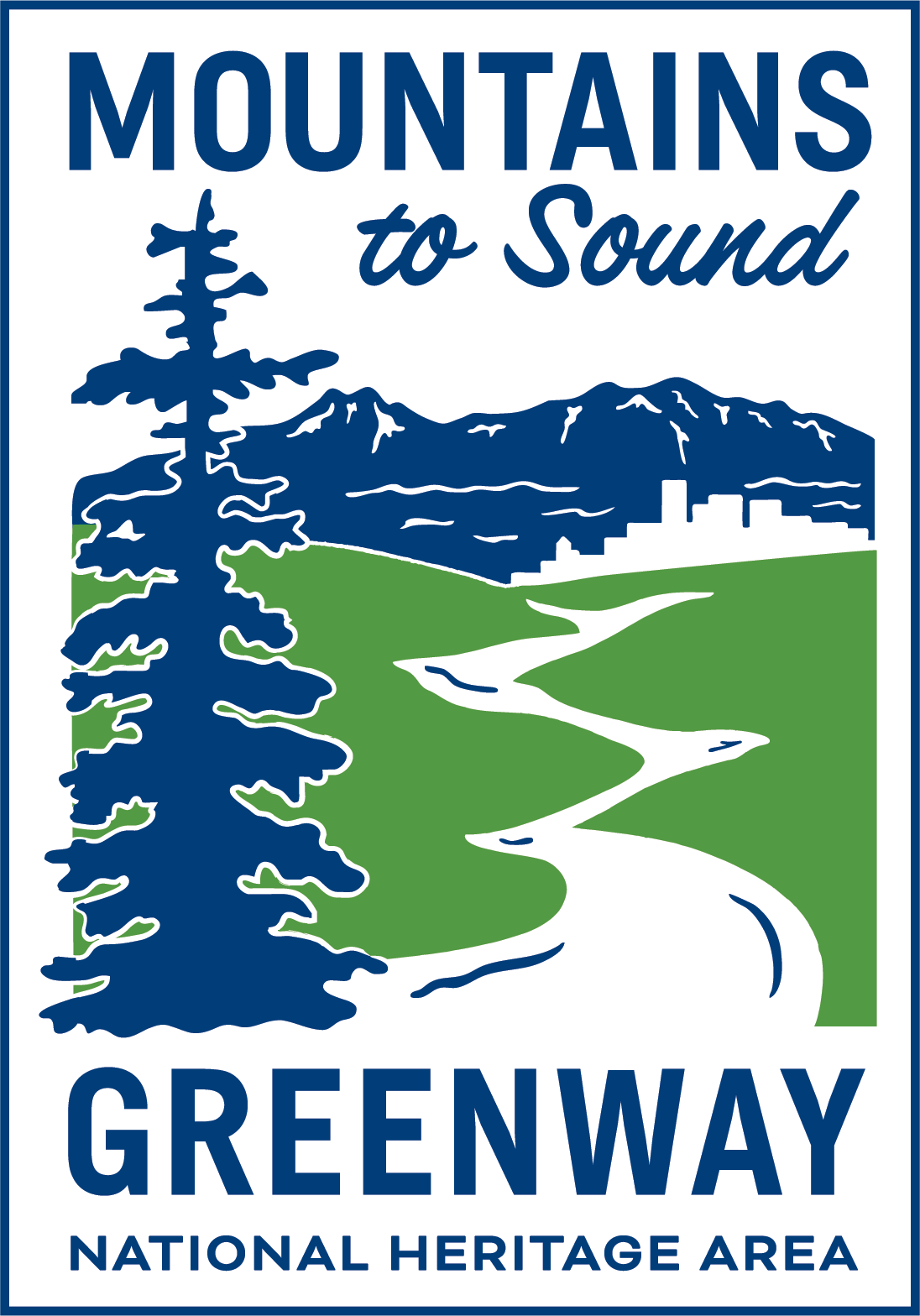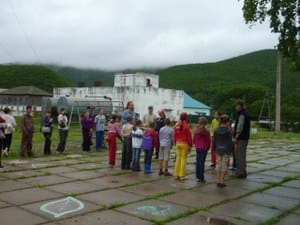Bringing the Greenway to Russia
In July, I had the good fortune to travel to the Russian Far East with Tony Allison, Greenway Environmental Educator and Patrick Mulligan, University of Washington Arboretum Education Manger. We started our ten day trip in Vladivostok which is located north of Korea. Tony received a grant from the Walter Pereyra Foundation which sponsored our trip to improve environmental education for children and adults, promote international exchange of ideas about environmental practices, and discuss joint projects for the future. We worked in the Primorsky Krai region which is about as big as Washington State. This region is the home of the endangered Amur tiger.
In Vladivostok we were based at the Botanical Garden (VBG), which has plant collections similar to those of the UW Arboretum. Our primary contacts were VBG employees who arranged for us to open their Environmental Education Week by presenting to a large group of educators. Patrick presented the history of environmental education in the United States and the UW Arboretum. I presented the Mountains to Sound Greenway Trust, and Tony backed both of us with his fluent translation.
We spent the rest of the ten days observing our Russian colleagues teach and traveling the countryside visiting five schools/clubs where we taught about ecosystems and exchanged ideas.
Russian students of all ages demonstrated a firm grasp of ecological concepts such as photosynthesis, impacts of humans on ecosystems, and relationships between parts of ecosystems. Teachers described their students as ‘shy’ and reluctant to participate which perhaps reflects a difference in teaching styles between the USA and Russia. One Russian professor at a teachers college acknowledged that in Russia teachers pour their knowledge into their students just like pouring a full cup of water into an empty cup. Then he mimed dumping the water under the table. In the USA we expect more participation, questions, and a dialogue between students and teachers.
Explaining the Mountains to Sound Greenway to the post-communist citizens of Primorsky Krai was challenging. Here are my favorite questions: How do you force your residents to compromise? How do you influence cities located in the Greenway? Do you always compromise with business and government? Administrators and teachers understood the concept of a non-profit but it was a stretch to grasp the depth and breath of the Greenway’s partnerships. Volunteerism is a novel idea in the Far East and our restoration work and how we recruit volunteers provoked interest. Primorsky Krai struggles with threats to their landscape like irresponsible and illegal timber harvesting, poaching of the Amur tiger, mineral extraction, roads, water pollution, flooding, industrial waste and an uninformed citizenry. One middle-aged man suggested that we purchase some of their tigers to put in Yellowstone National Park.
We hope we can continue this rich exchange of ideas with our friends in the Far East. We have much to learn from them about connecting with the natural world, creating gardens out of garbage-filled lots, and maintaining optimism in the face of difficult circumstances.





